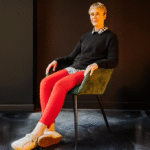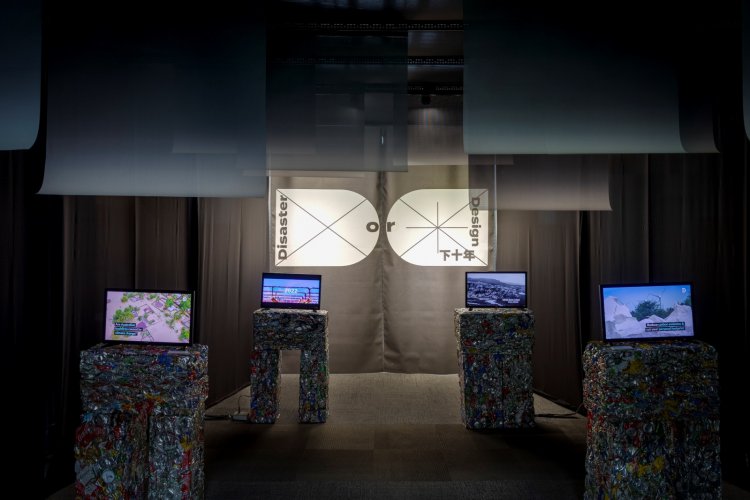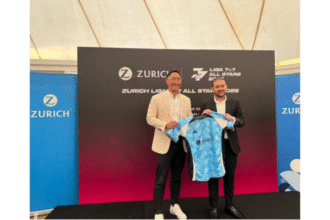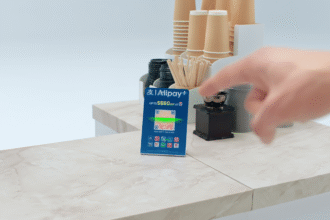In 2006, the British New Economic Foundation collaborated with the global think tank Global Footprint Network (GFN) to develop and promote the concept of Earth Overshoot Day. After analysing historical data, they found that humans began to “overdraft” ecological resources around 1970, and that later in the years of 1986, 1997, and 2005, humans ran an ecological deficit in October, September, and August respectively.1
“The increasing deficit over the years indicates that the current economic production model has a profound impact on the environment with the consumption of ecological resources difficult to sustain and only getting worse every year,” said Taiwan Design Research Institute (TDRI) President Chang Chi-Yi.

In 2019, for the first time ever, the Earth Overshoot Day fell in the month of July, implying a global ecological deficit of five months in 2019. The “2020 Circular Design Exhibition” organized by the Industrial Development Bureau (IDB) of the Taiwanese Ministry of Economic Affairs highlighted the concept of Earth Overshoot Day at launch, allowing visitors to realize the need to enhance the recycling of resources. 2
Taiwan’s mature manufacturing supply chain allows designers to quickly integrate the supply chain of their circular products. In recent years, most products nominated for the Golden Pin Design Awards have embedded circular designs into their products – from the recycling and reuse of waste resources. Works reproduced from recycled resources also include industrial products with more complex components.
Outside of sustainable materials, design works that can further emphasize recycling value from the level of usage remain rare. Among them, the best work includes 2020 Award-winning product MAC WARD. 3 The modular ward MAC WARD was developed jointly by Fu Jen Catholic University Hospital and MINIWIZ in response to the current COVID-19 pandemic. With this unique design, a general ward can be converted into a negative pressure intensive-care room within 48 hours. Its components are lightweight and easy to disassemble, easy to transport and carry, and can provide quick solutions in the future outbreak of epidemics.
Taiwan’s design industry aims to be more active in setting guidelines for different implementation directions to establish an accessible information system – including information such as costs and long-term goals – encouraging previously confidential back-end information to be included in front-end discussions.

A strong case of incorporating circular design in commercial mechanisms to introduce recycling value is the bottle recycling program of the Taiwan Tobacco & Liquor Corporation. After analysing the reorganization of the company’s overall recycling system, the company decided to incentivise consumers with an NTD$3 (RM0.43) recycling fee for each empty bottle. Through this business concept, the company successfully reduced the budget for producing new bottles and the cost of cleaning old bottles, thus greatly reducing operational costs.
Since the promotion of the recycling program in 2016, the recycling rate had reached 104.48% in 2019 – this means some old wine bottles discarded from past years were also recycled. This case created a win-win situation in which the company’s costs were reduced, consumers were rewarded, and resources were recycled. It also proved that even without leveraging new technologies, the transformation of business models can also bring about huge improvements and implement circular values.
“Taiwan’s current promotion of circular economy is focused more on product materials and less on the business model or system innovation,” said Chang. “Compared with Western countries, Taiwan has a long-standing heritage in the OEM business with a well-developed manufacturing base and industrial supply chain. This makes it easier for designers to reshape and transform front-end materials and technologies.”
“It is important that organizations are open to having designers participate in decision-making processes instead of design just being a technical department in the division of labour,” said Chang. “Circular design involves the delicate balance and solutions of various scales and considerations. Only with comprehensive information about the lifecycle of various resources can we find a holistic solution to system sustainability.”
Through its global expansion plans, TDRI is actively reaching out to local Malaysian organizations and businesses to forge partnerships by introducing Taiwanese design abilities. In July 2020, TDRI has previously conducted online business matching sessions with 17 selected Malaysian companies and will continue to explore partnerships with Malaysian businesses in the upcoming year.
References,
1 Past Earth Overshoot Days
22020 Circular Design Exhibition: Next Decade
3Ministry of Economic Affairs and Ministry of Health and Welfare Collaborate to Build Smart Patient Ward

















